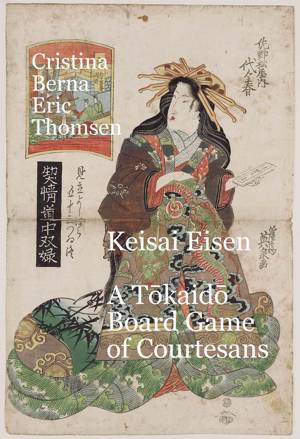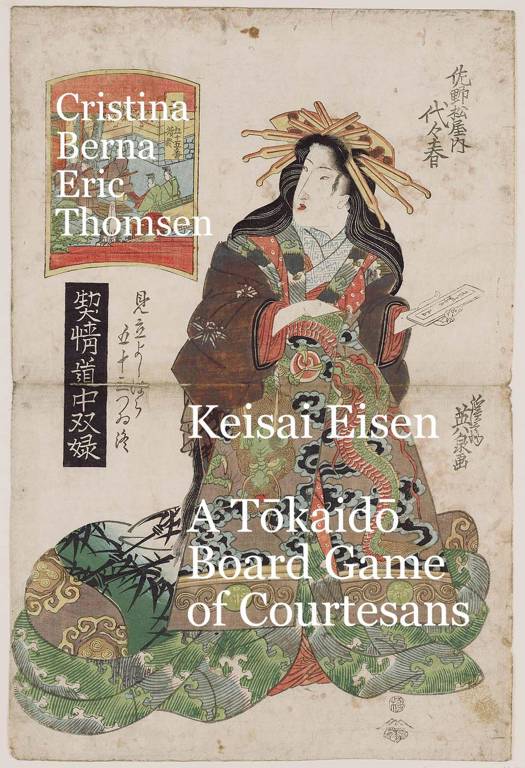
- Retrait gratuit dans votre magasin Club
- 7.000.000 titres dans notre catalogue
- Payer en toute sécurité
- Toujours un magasin près de chez vous
- Retrait gratuit dans votre magasin Club
- 7.000.000 titres dans notre catalogue
- Payer en toute sécurité
- Toujours un magasin près de chez vous
Description
What did prostitutes look like in Edo Japan?
Keisai Eisen (1790 -1848) is especially known for his bijin-ga, pretty women, and landscapes. He is known for his participation in the series 69 stations of the Nakasendō together with Hiroshige.
The series A Tōkaidō Board Game of Courtesans, Fifty-three Pairings in the Yoshiwara used the Tōkaidō with landscape inserts as an excuse to show courtesans and geisha, bijin-ga, to skirt the censorship. They were published 1821-1823. His bijin-ga are considered to be masterpieces of the "decadent" Bunsei Era (1818–1830).
Most of them have impressive hairdo with many ornamental hairpins and combs. Their dress is extravagant with beautiful patterns and sublime embroideries. Their faces are elongated squares with long noses and small pouted painted mouths.
Courtesans were desirable for their rich and splendid attire, not so much for their beauty and their names were actually like trademarks for a series of girls performing the role with the brothel in question.
Spécifications
Parties prenantes
- Auteur(s) :
- Editeur:
Contenu
- Langue:
- Anglais
Caractéristiques
- EAN:
- 9798201198916
- Date de parution :
- 15-01-22
- Format:
- Ebook
- Protection digitale:
- /
- Format numérique:
- ePub







